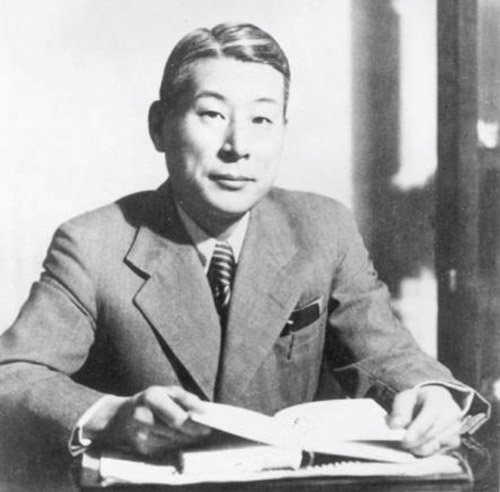

All the chairs were filled and even more were needed for the viewing of the 2015 film “Persona Non Grata: The Story of Chiune Sugihara,” which took place Sunday night, July 8, at Congregation Bnai Yeshurun. “Persona Non Grata,” directed by Cellin Gluck, is a biographical film that tells the story of Japanese diplomat Chiune Sugihara, who, after being declared persona non grata by the Russian government, was stationed as the Japanese consul in Lithuania at the outset of World War II. Going against the wishes of Japan he issued transit visas to Jewish refugees escaping the Nazis, saving over 6,000 lives.
After the two-hour film, Rabbi Michael Miller, executive vice president and CEO of the Jewish Community Relations Council of Greater New York, offered comments. Rabbi Miller noted two important parts of the Sugihara story that were absent from the film. The movie focused on families that Sugihara saved; however, Sugihara also provided visas to the Mir Yeshiva boys who had fled from Poland to Lithuania, and because of Sugihara were now able to escape to Japan and eventually continue their Torah learning in Shanghai. In addition, the film ended in a rather upbeat and hopeful manner; however, in truth, Rabbi Miller explained that when “Sugihara came back to Japan he was drummed out of the foreign ministry and he found it very difficult to earn a living.” He was only recognized by the Japanese government for the role he played in the war in the year 2000, 55 years after the war had ended and 14 years after his death. His actions were truly heroic and selfless.
Rabbi Miller attended the Japanese government’s memorial for Sugihara in 2000 on the 100th anniversary of Sugihara’s birth and he was given the honor of making a toast. Rabbi Miller read from the text of that toast: “2,000 years ago our sage rabbis, our great teachers, wrote that he who saves one life it is as if he saved the entire world… Sugihara saved not only one entire world but 6,000 worlds, 6,000 individuals whom he did not know, whom he never met, whose personal lives were oblivious to him, who were of a different race, who practiced a unique religion, who spoke multiple languages, who were strong, who were weak, who were tall, who were short, who were scholars, who were laborers, who were saints, who were ordinary.” The toast continued: “I have never met Chiune Sugihara, but I have encountered several of the worlds he saved.” Rabbi Miller ended the toast by saying, “L’chaim,” (to life) because that is what Sugihara provided for the Jewish refugees. After his speech, Rabbi Miller displayed pictures from the 2000 memorial.
One of the “worlds” that Sugihara saved was the father of Rabbi Miller’s long-time chavruta (study partner) and coordinator of Sunday night’s event, Ira Jaskoll. Jaskoll wanted people to see this film because he believes it is important for the community to realize what Sugihara did for the Jews. There are several documentaries about Sugihara, but Jaskoll chose this movie because it is the only dramatic film about the Sugihara story that has been produced. He also thought it was appropriate to show the film during the Three Weeks, a time when we think about the tragedies of Jewish history. Jaskoll said that his father rarely spoke about his experience, and he only discovered after his father’s death, when the “Sugihara list” was published, that his father was given a Sugihara visa (which he brought to show the crowd). His father Sual Jaskoll (Szaps Jaskolka), learning in the Lomze Yeshiva, escaped from Poland to Lithuania where he received his visa to Japan. However, since Sual Jaskol had a visa to the United States because he had eight uncles living there, he did not end up in Shanghai with the other yeshiva boys. Instead, after a short stopover in Japan, he came to the United States.
Jaskoll said, “I wouldn’t be here if not for him [Sugihara]: me, my sisters, my children and my grandchildren. That is why I wanted to show this movie.”
As Rabbi Miller said, Sugihara saved many worlds. A truly righteous gentile and a hero who defied evil to save the Jewish people, Sugihara was honored in 1984 by Yad Vashem as one of the “righteous among the nations.”
By Sara Schapiro
�Sara Schapiro is a rising sophomore at Stern College for Women and a resident of Bergenfield.










